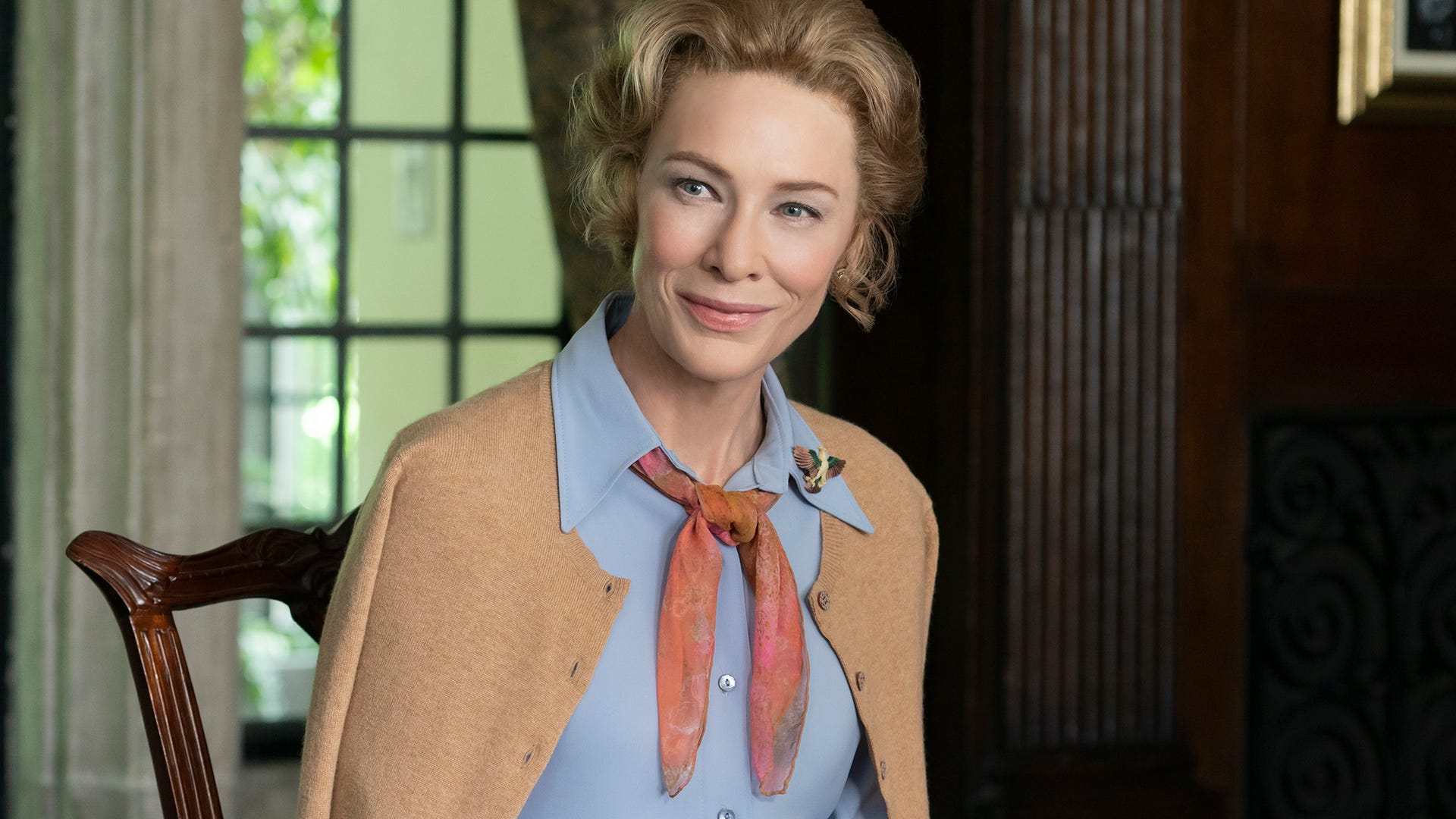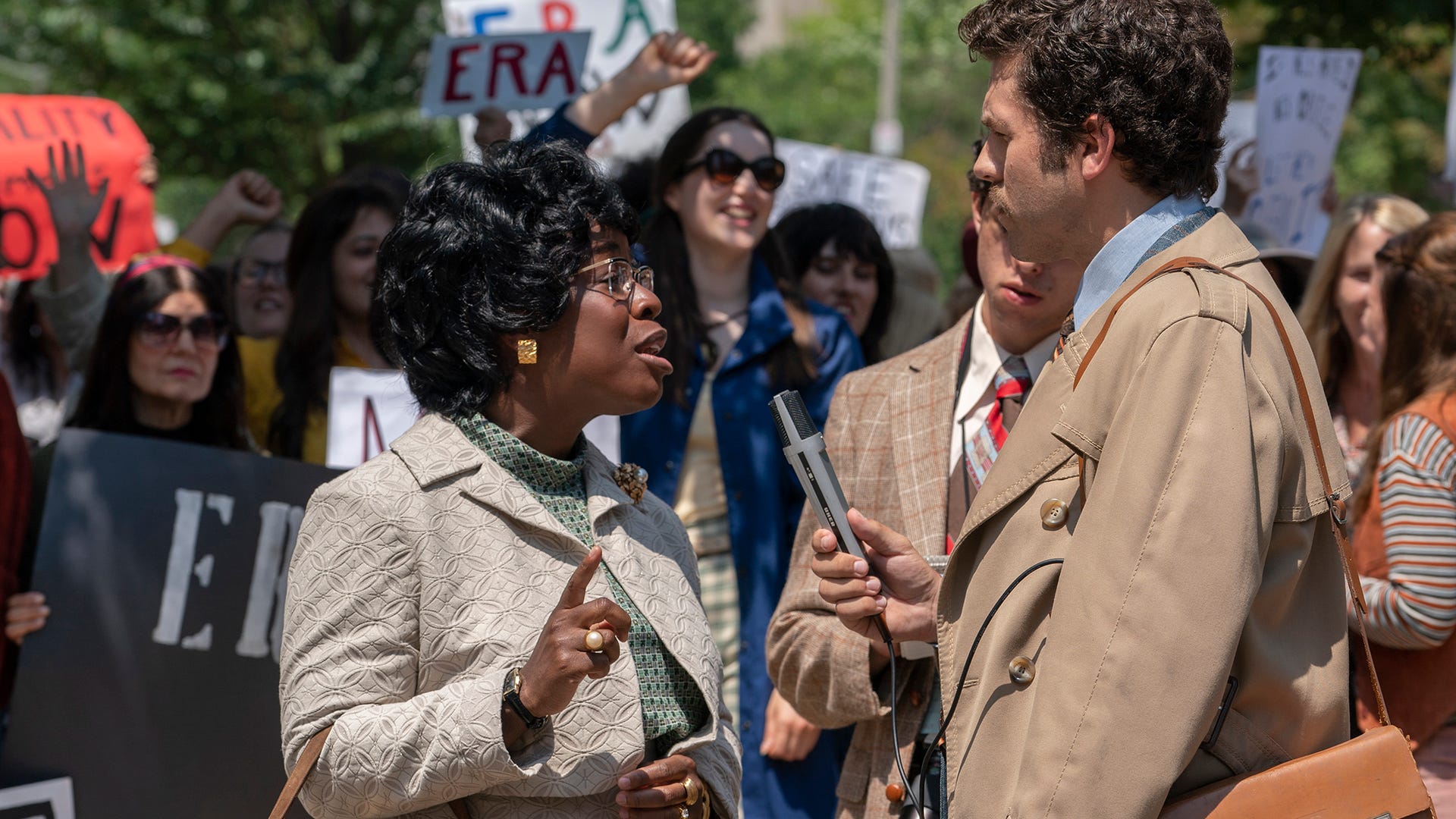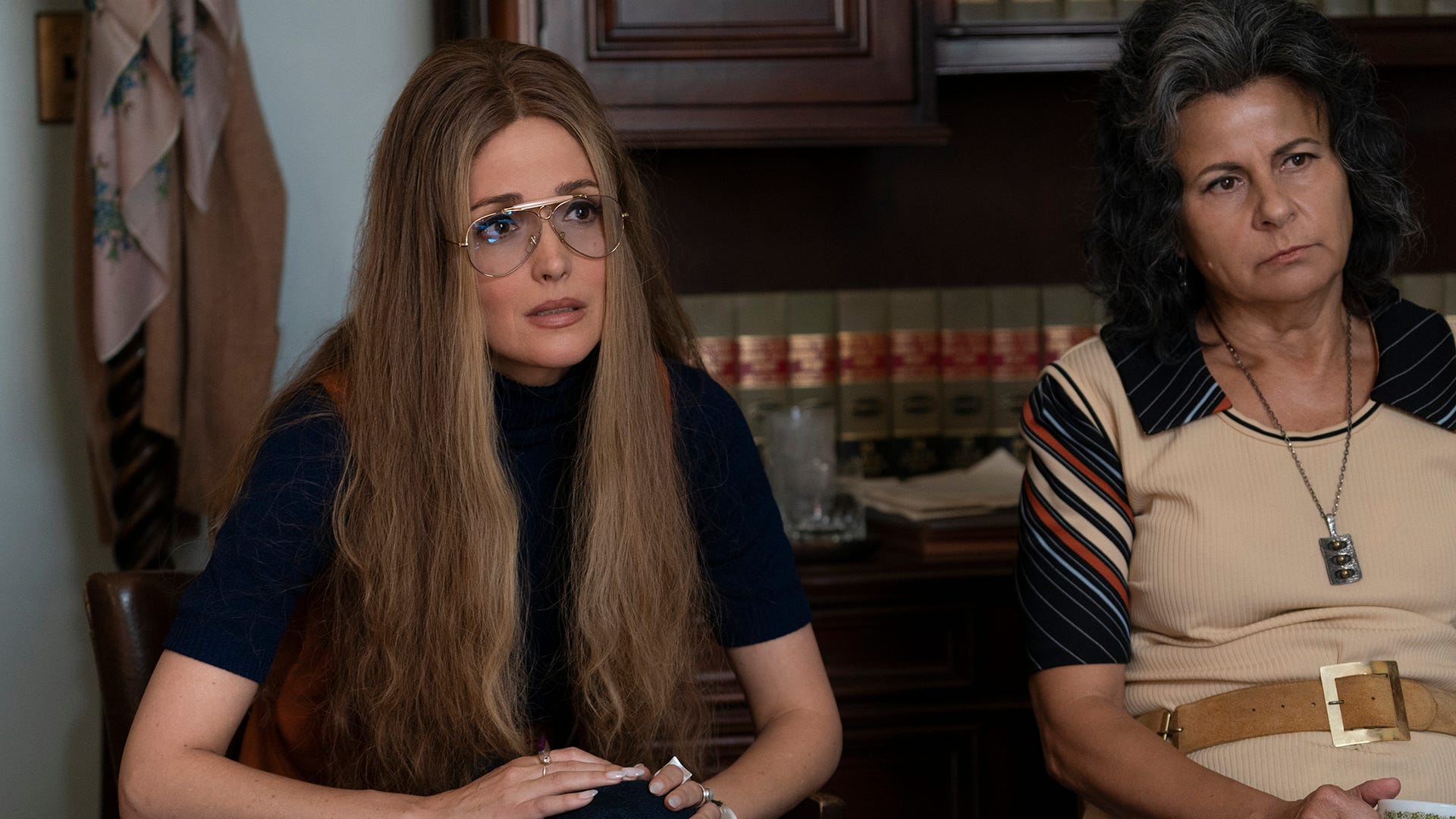Join or Sign In
Sign in to customize your TV listings
By joining TV Guide, you agree to our Terms of Use and acknowledge the data practices in our Privacy Policy.
Mrs. America Review: Cate Blanchett Is Compelling as Antifeminist Leader Full of Contradictions
The FX on Hulu series chronicles the modern history of feminism in the U.S. with all its jagged imperfections
If there is one thing Mrs. Americais hell bent on showing its audience, it's that feminism is complex, messy, and extremely divisive among women -- too discordant to even result in much progress. It's a slippery hill to die on, but the new FX on Hulu series aims to chronicle the modern history of feminism in the U.S. with all its jagged imperfections.
And it often does so, even more boldly, through the eyes of the late Phyllis Schlafly (Cate Blanchett), the conservative, middle-aged white homemaker/author/hopeful politician hailing from Illinois. It is, as the kids say, a choice. Created by Mad Men's Dahvi Waller, Mrs. America follows Schlafly's journey beginning from the early 1970s after losing her second campaign through 1980, when her staunch opposition against the Equal Rights Amendment (ERA) for women is losing steam.
Through Blanchett's compassionate performance, we see Schlafly try to carve a space for herself in the men's-only political game throughout her entire career. For instance, she's invited to a meeting to advocate for her platforms -- including traditional gender roles as well as anti-abortion and same-sex marriage -- but is asked to pour her male counterparts cups of coffee instead. She is also inclined to seek "permission" from her husband, Fred (an appropriately reserved John Slattery), on everything from pursuing a law degree to speaking at events, even when her political lobbying reaches peak success.
The Best TV Shows and Movies to Watch on Hulu in April 2020
But as Schlafly swats away the flirtations and condescension from her counterparts, Blanchett portrays it with an airy resilience and a steadfast smile, indicating that the conservative is aware of misogyny around her but it doesn't rank on her agenda of, for example, keeping women out of the workplace. It's just one of many contradictions embedded in Schlafly's manifesto. She's adamant about women's place in the home, yet laboriously advocates across the country with a law degree and six children back at home. She also founds the Eagle Forum, a conservative group of mainly women diligently fighting to protect the homemaker.

Cate Blanchett, Mrs. America
Sabrina Lantos/FXMrs. America doesn't shy away from pointing out Schlafly's antithetical principles. They include turning a blind eye to female domestic abuse victims and the KKK's support of the Eagle Forum, as well as hiding the fact that her eldest son is gay. Her multiple conflicts ultimately cause dissension among her tribe -- from Alice to Rosemary (the great Sarah Paulson and Melanie Lynskey).
Unless audiences have read one of the many biographies on Schlafly or the Eagle Forum, they'll have to decide how much of the drama in Mrs. America is real and how much is heightened for the series -- or whether they care either way. While there is a disclaimer that some characters and dialogue are in fact embellished, the disunity among female characters proclaiming to be for other women should be visceral for anyone, even if their only glimpse of this is from Twitter.
Find out what's on tonight! Sign up for TV Guide's daily recommendation newsletter
Meanwhile, Mrs. America spares no one as it glides through the decade -- with the help of its groovy costumes and soundtrack by Bina Daigelar and Mary Ramos, respectively -- introducing us to women on the other side of the fight like Gloria Steinem (Rose Byrne) and The Feminine Mystique author Betty Friedan (Tracey Ullman). The series recounts that within their struggle for abortion rights and equal pay, they sideline important issues like lesbian rights and advancements for women of color, at the height of the civil rights movement no less.
Though the series presents a mere snapshot of the conflict baked within the feminist movement during this era, which sometimes dwarfs its own nuance (like the inclusion of Steinem's black boyfriend played by Jay Ellis), it does have the good sense to add a scene calling out tokenism in the workplace. It's a masterfully subtle scene with Byrne's Steinem but propelled by Bria Henderson as black lesbian feminist Margaret Sloan, who attempts to add the rampant issue -- that is directly impacting her in this very moment -- to their plank.

Uzo Aduba, Mrs. America
Sabrina Lantos/FXThe increasingly stacked series also follows Shirley Chisholm on her path to become the first woman to run for president for the Democratic party. She earns a worthy enough storyline brought to life by the wonderful Uzo Aduba. Her plot exposes a whole other area of friction among black women, including Sloan, whose needs are not all supported among the group. Chisholm and her supporters fight to get in doors inched open for white women like Steinem and Schlafly while people like Sloan and other gay women are asking for similar support from their black female peers who deprioritize them.
It is perhaps apt that Mrs. America doesn't seem to take a side or point to any conclusion as it explores the obviously complicated topic of feminism -- as well as its arbiters individually clamoring for their chance at the podium. The feminist movement is today still evolving to reorganize, and in some cases dismantle, its own talking points. As the series rightly reminds us, we still have far to go before all 50 states even agree to ratify the ERA after almost a century of trying.
Mrs. America is a less than perfect yet compelling effort by Waller that is punctuated by top notch performances throughout -- including Margo Martindale as Bella Abzug, Elizabeth Banks as Jill Ruckelshaus, and Niecy Nash as Flo Kennedy.
The series boasts an equally remarkable group of women behind the scenes too. Tanya Barfield and Boo Killebrew join Waller as screenwriters as well as directors Amma Asante, Anna Boden, and Laure de Clermont-Tonnerre. Together they worked to thoughtfully and poignantly illuminate the myriad female voices that impacted history and the way we think today.
It proves once again that intersectional feminism can be done, and well.
The first three episodes of Mrs. America are now streaming on FX on Hulu. Subsequent episodes will be released weekly on Wednesdays.
TV Guide rating: 4/5

Rose Byrne and Tracey Ullman, Mrs. America
Sabrina Lantos/FX